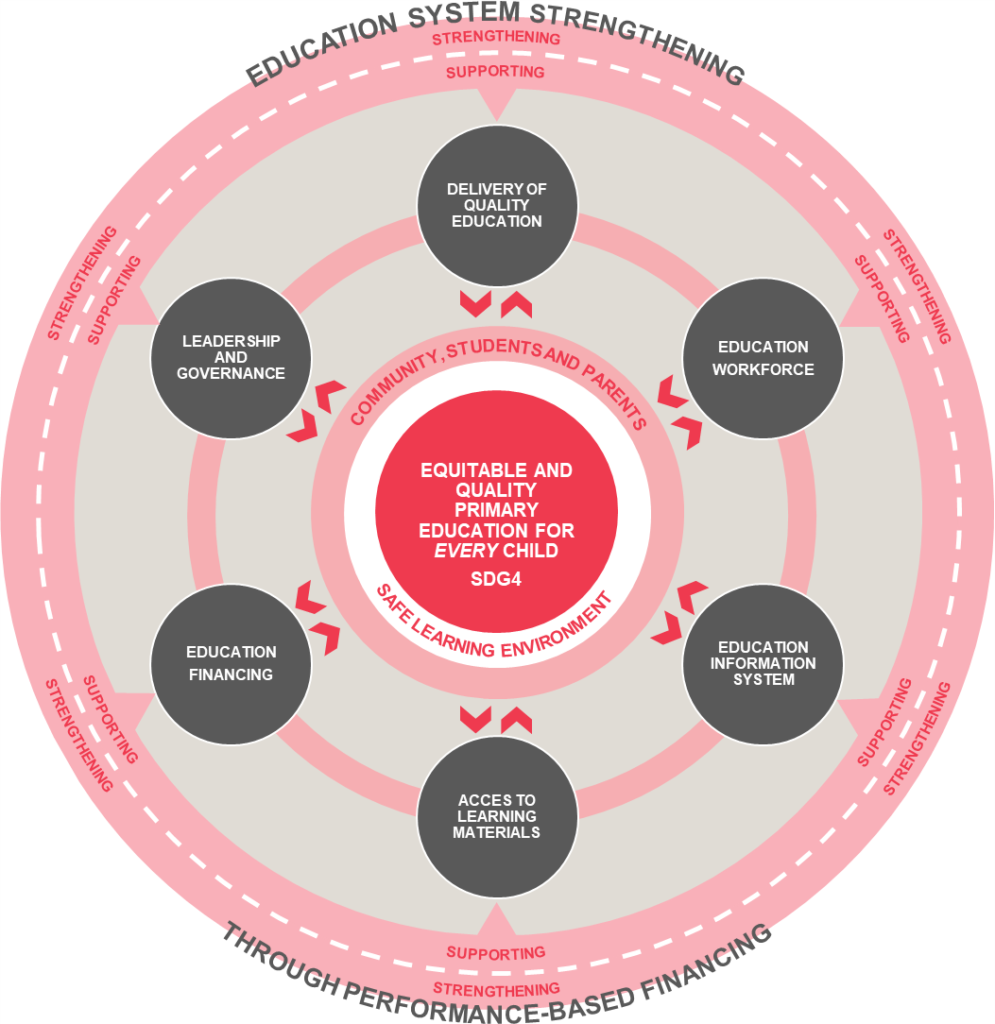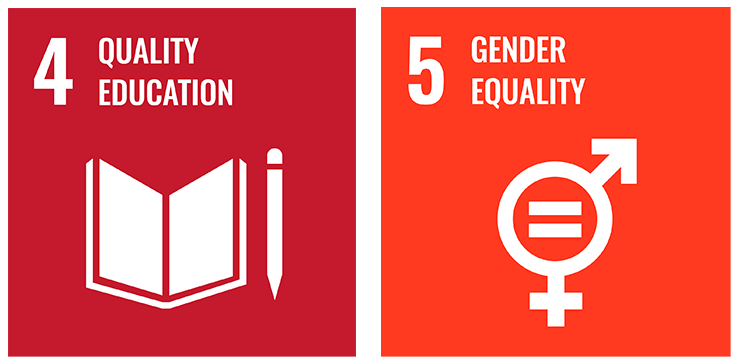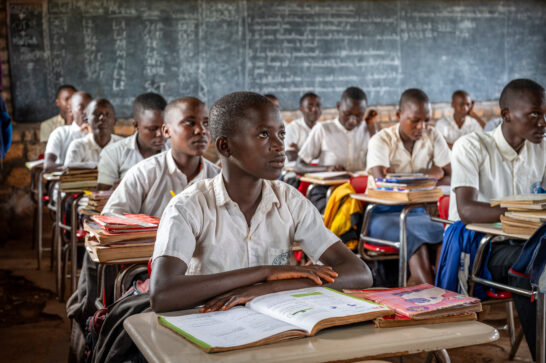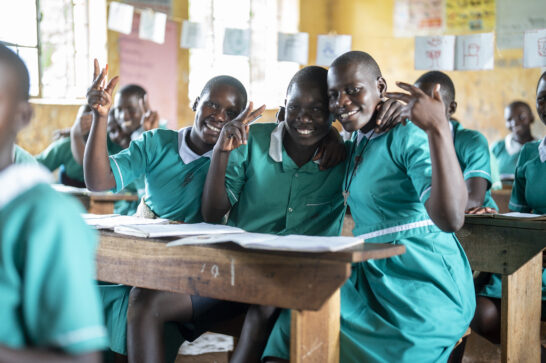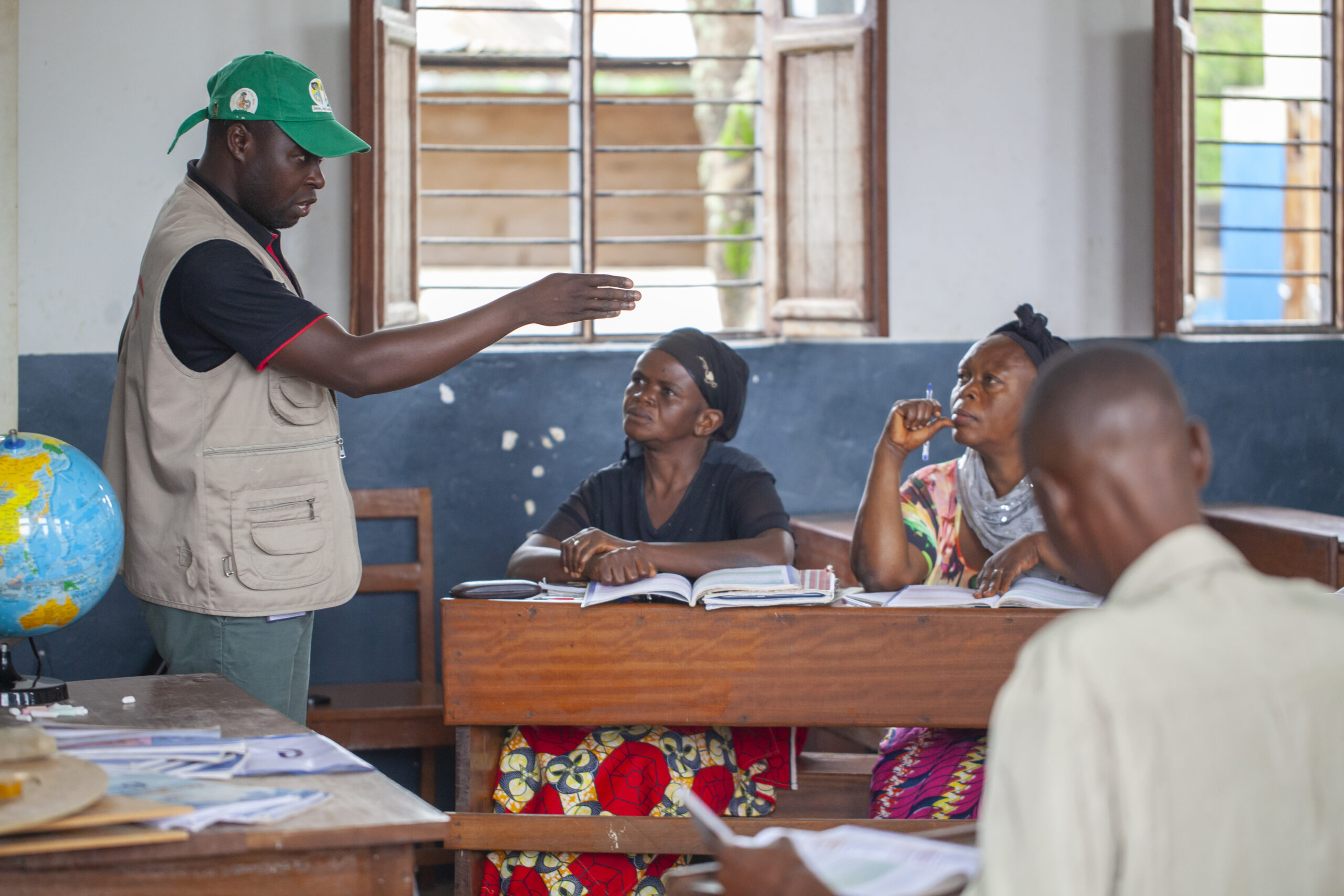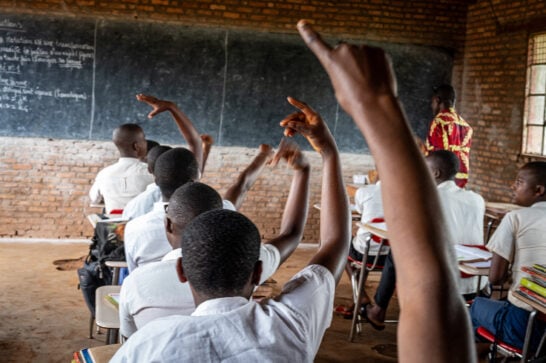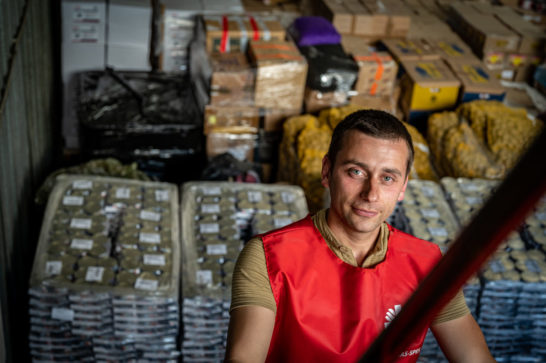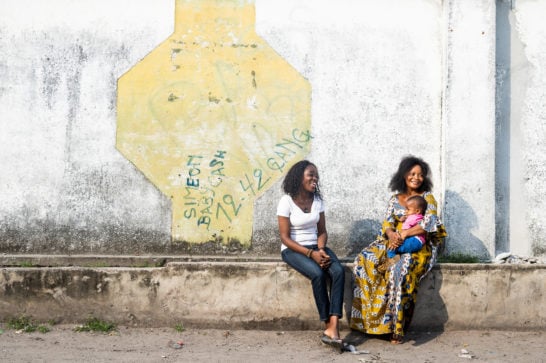Education is a foundation for life and a gateway for personal, social and economic development.
However, more than 250 million children and youth are not in school. Among those who do attend school, many fail to reach minimum levels in reading and mathematics. In low-income countries, and mainly in sub-Saharan Africa, only 67% of children complete primary school.
We aim to guarantee equitable access to primary schools, improve the quality of education, and install good governance in the education system. To achieve this, we strengthen the primary education system at large and motivate teachers through our performance-based financing approach. We collaborate with key stakeholders to ensure our approach aligns with national policies and goals.
Performance-based financing in education
Performance-based financing is a systems approach that financially rewards schools and local education authorities for achieving results on a specific set of indicators. It entails a direct link between the funding and results.
These results are independently verified and schools are coached and mentored in their efforts to improve their services, such as ensuring more girls attend class and improving their quality of education.


